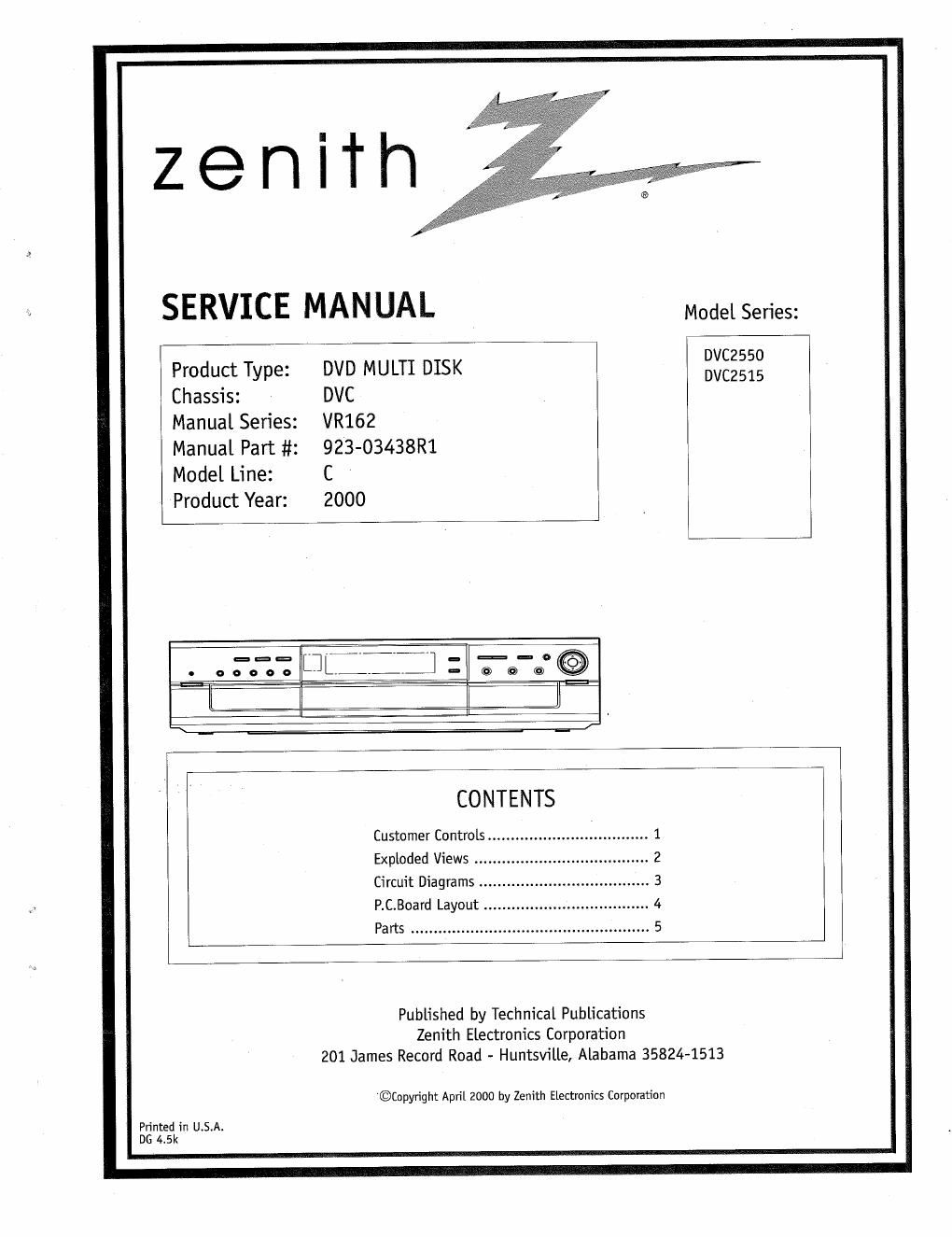Zenith dvc 2515 service manual
This is the 66 pages manual for zenith dvc 2515 service manual.
Read or download the pdf for free. If you want to contribute, please upload pdfs to audioservicemanuals.wetransfer.com.
Page: 1 / 66
